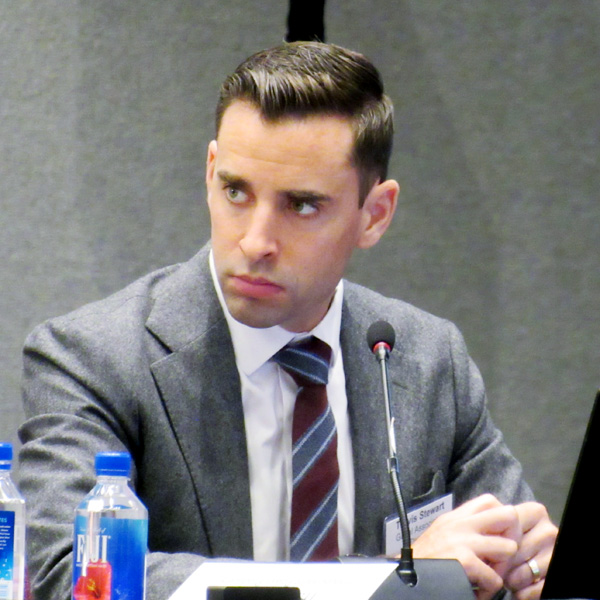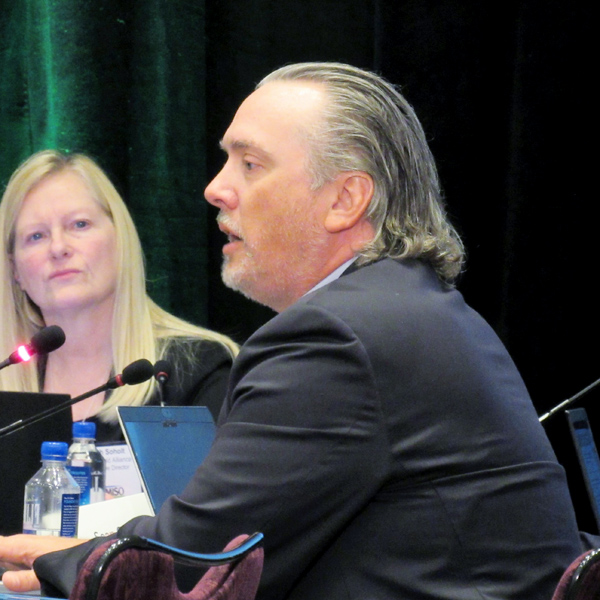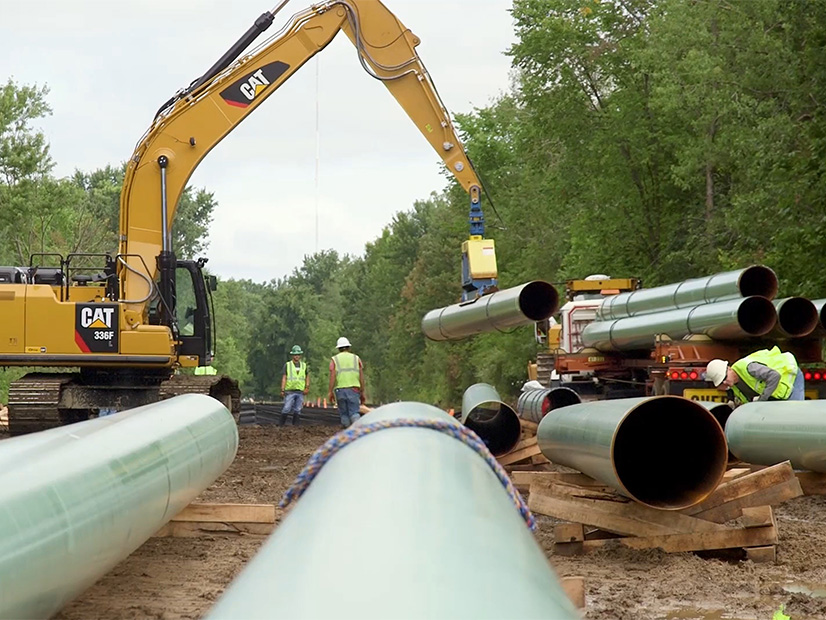ORLANDO, Fla. — MISO members this week offered a few tips on how the footprint can weather a tough winter, a day after the RTO elevated the risk level.
The grid operator warned that it’s in for a bumpier season, considering fresh concerns around coal and natural gas fuel assurance and security. (See related story, MISO Sounds Alarm on Potential Winter Fuel Scarcity.)
 Todd Hillman, MISO | © RTO Insider LLC
Todd Hillman, MISO | © RTO Insider LLC
“For this winter in particular, we know [awareness around] fuel assurance has been heightened,” MISO Chief Customer Officer Todd Hillman said, noting a doubling of natural gas prices since last year and concerns around coal stockpiles and deliveries.
The U.S. Energy Information Administration recently reported that coal production has sunk to a level not seen since 1978.
Speaking at an Advisory Committee meeting Wednesday as part of MISO Board Week, Hillman said the RTO’s planning futures point to an increased reliance on natural gas going forward.
“In MISO’s view, the number of recent outages is unacceptable,” Hillman said, calling up gas generation performance during mid-February’s arctic blast. (See MISO Underscores Need for RA Action in Winter Storm Review.) “This winter, are we better prepared, or more just bracing for impact?”
MISO’s current generation fleet contains about 80 GW worth of natural gas capacity, 80% of that without firm fuel service. During the February winter storm, the gas fleet experienced a more than 30% forced outage rate.
“Every time we see a weather event that we think is unsurpassed, Mother Nature says, ‘Here, hold my beer,’” MISO President Clair Moeller quipped.
Madison Gas and Electric’s Megan Wisersky said it’s not cost effective for most gas generation operators to secure firm transport.
Stakeholders pointed out that NERC’s new cold weather standards aren’t set to come into effect until April 2023.
“We have a potential reliability situation in front of us that can’t wait,” Cleco Cajun’s Tia Elliott said.
MISO Director Todd Raba asked what the RTO could immediately do to assuage conditions this winter. “There might not be an answer; that’s OK,” he said after a beat of silence.
 Travis Stewart, COMPP | © RTO Insider LLC
Travis Stewart, COMPP | © RTO Insider LLC
“Other than meditation and prayer,” Hillman jokingly added, prompting stakeholders for suggestions.
Coalition of Midwest Power Producers representative Travis Stewart said MISO could reach out to generators with long lead times to make commitments days in advance.
“We might end up with some uplift, but that’s the cost of reliability. It’s a tough situation, and I think MISO’s markets do an excellent job,” Stewart said.
Clean Grid Alliance’s Beth Soholt said regulators should issue more conservation pleas through television and radio. “It may help us through a shortage or critical time. … I think it just heightens that we’re both going to need the demand side and the supply side,” she said.
“I think we spend so much time taking care of customers that we don’t realize that they have a responsibility to the system. And I think that’s a positive,” Indiana Utility Regulatory Commissioner Sarah Freeman agreed.
But Wisersky said “constant public appeals” might diminish MISO members’ credibility. She also said critical loads like hospitals should obtain on-site backup generation, given the new reality of intermittent generation coupled with knockout weather events.
 CGA’s Beth Soholt and Exelon’s John Orr | © RTO Insider LLC
CGA’s Beth Soholt and Exelon’s John Orr | © RTO Insider LLC
“If we’re honest with our customers, we can’t 100% guarantee that we’re going to be there all the time,” Wisersky said.
Exelon’s John Orr said MISO could address the public about its largely behind-the-scenes work.
“The public gets very little information. … MISO can provide some of this understanding,” he said, noting that the RTO can explain its role and decision-making process and actions taken like rolling blackouts.
Freeman also said the impending introduction of MISO’s seasonal capacity auction and availability-based capacity accreditation will deliver some hard truths on the readiness of MISO’s fleet.
“Like it or not, it will send a signal to generators on how they’re going to be compensated,” she said.
Stakeholders also said MISO should look to generation other than natural gas.
Soholt said that though gas plants are necessary to reliability, she questioned how much natural gas generation the U.S. should build on its way to decarbonization. She said the MISO footprint could use electric storage and more transmission projects to move power around during winter storms.
“How much is in our carbon checkbook to keep building natural gas?” Soholt said. “Natural gas is part of the puzzle, but it’s not the whole answer.”
Consumers Energy’s Kevin Van Oirschot pointed out that several of MISO’s market-based solutions meant to aid reliability are waiting on the new market platform, which will be better able to handle energy storage, distributed energy participation and more demand-side management.




